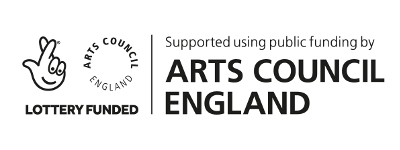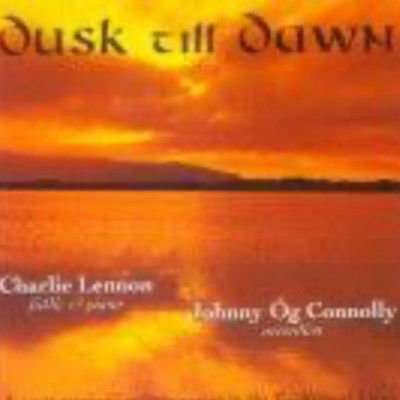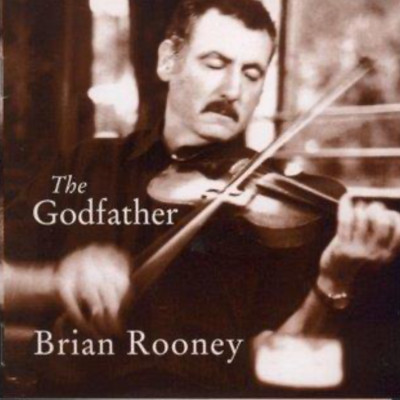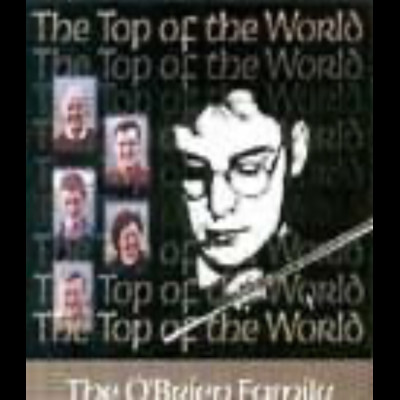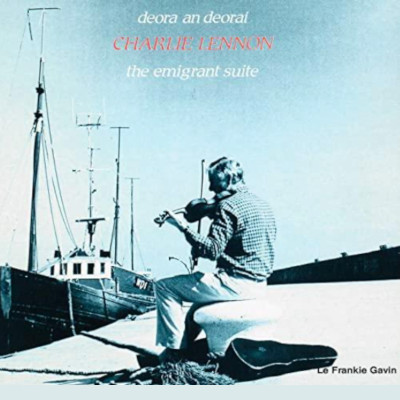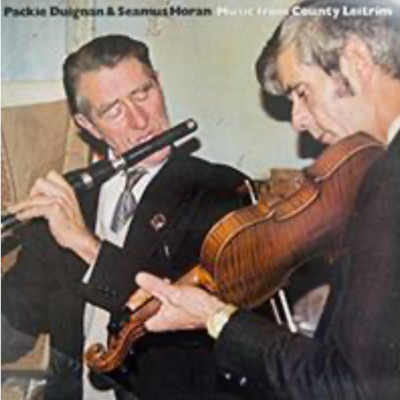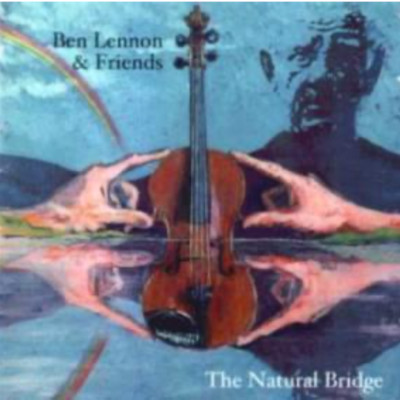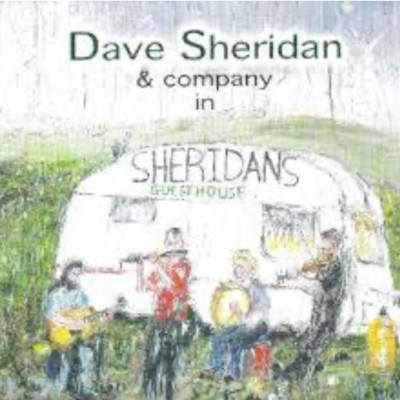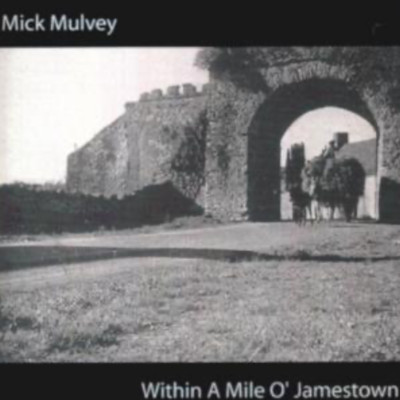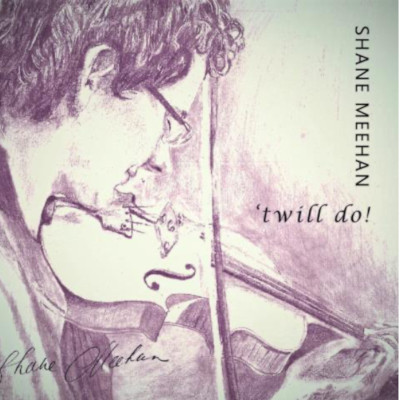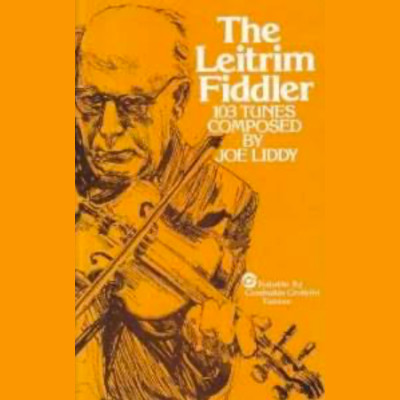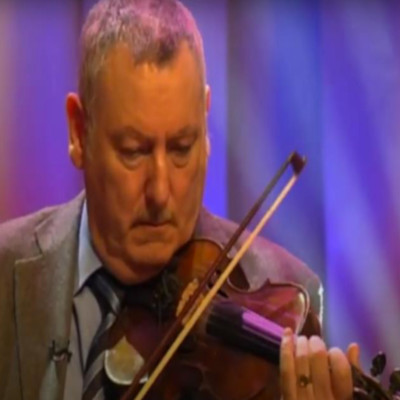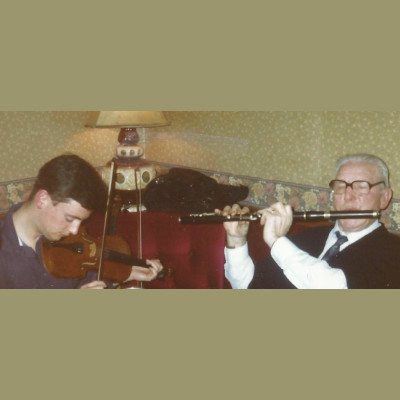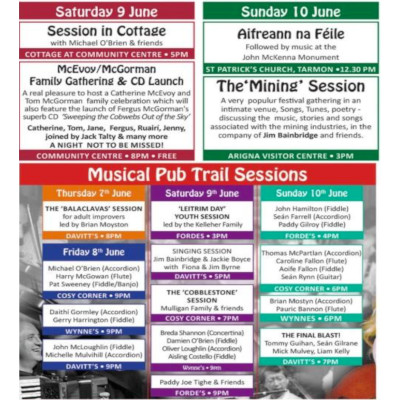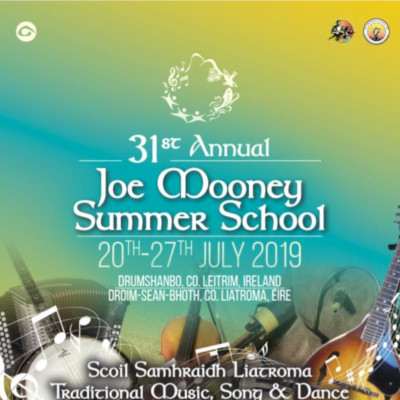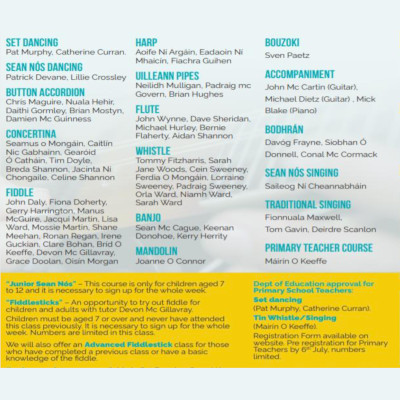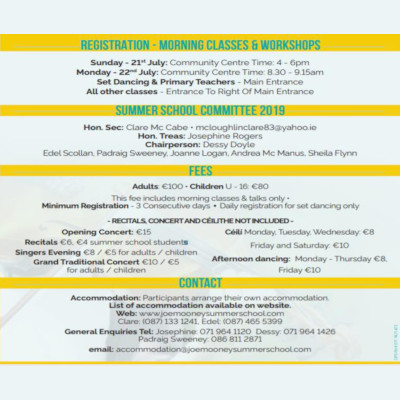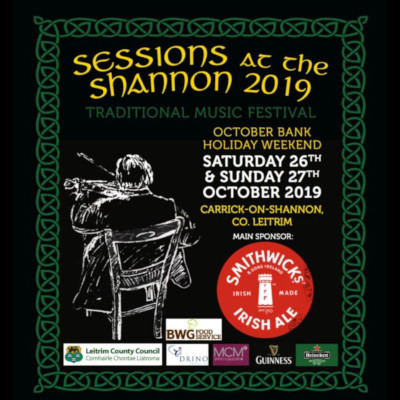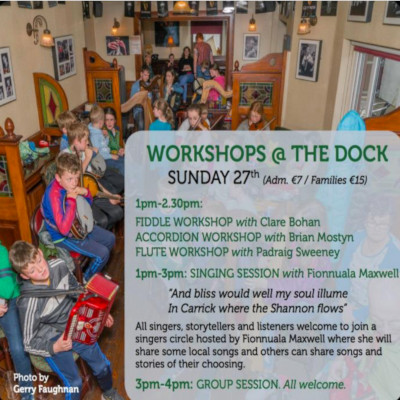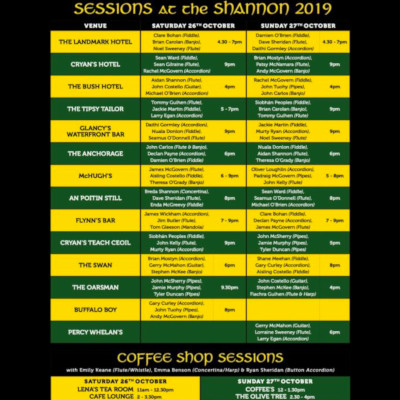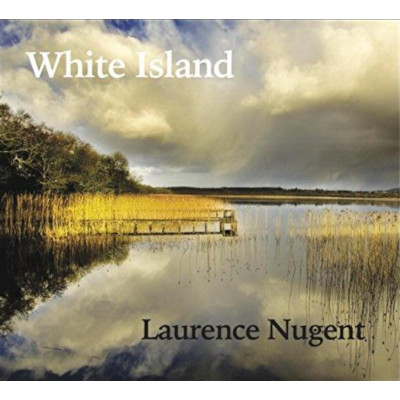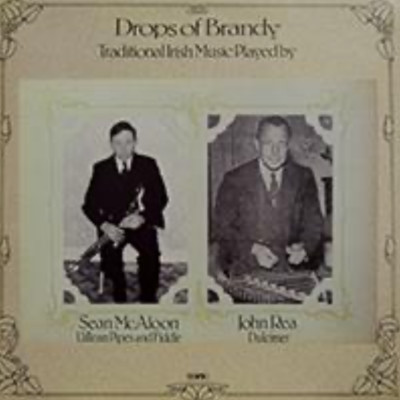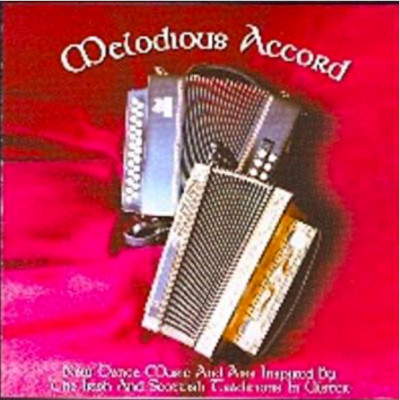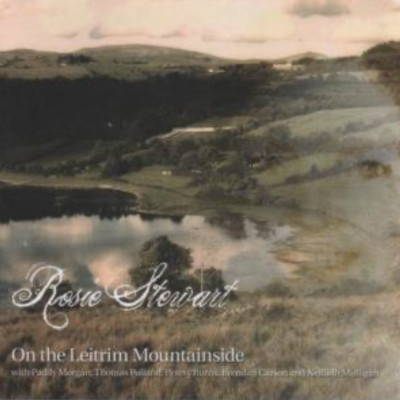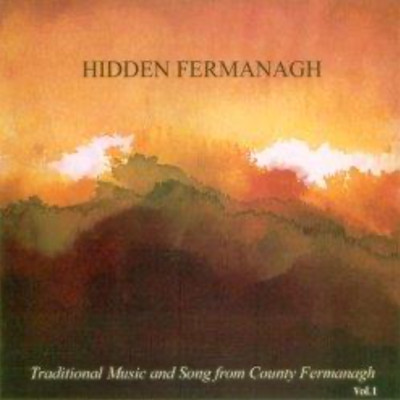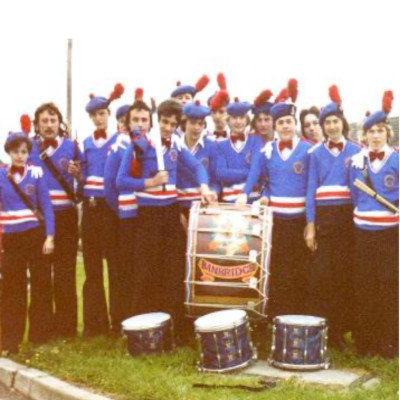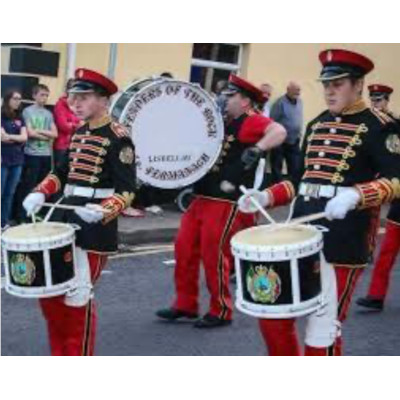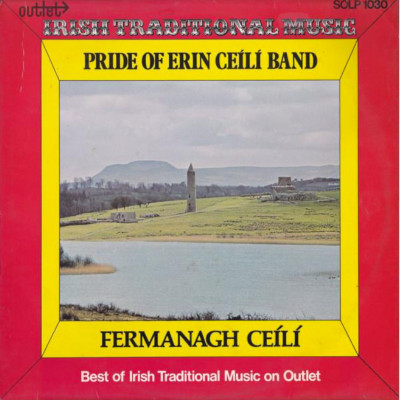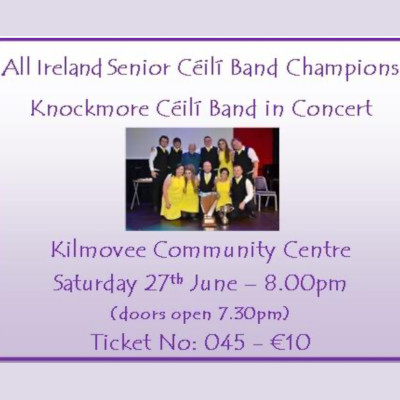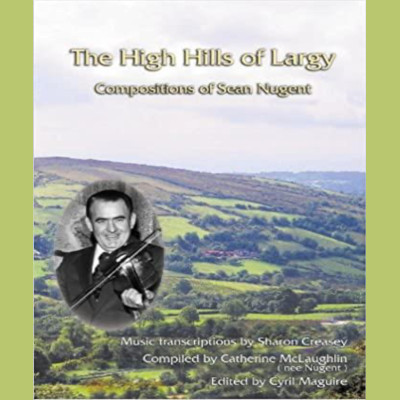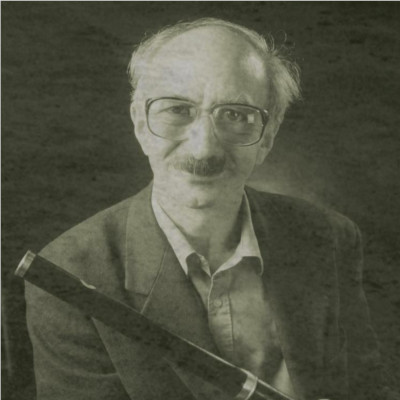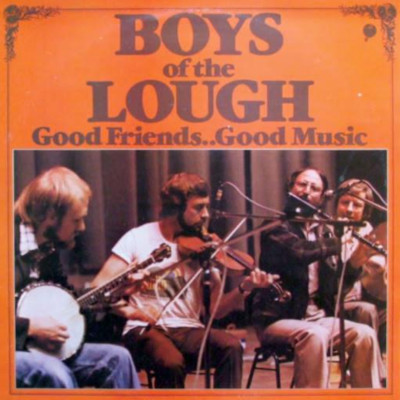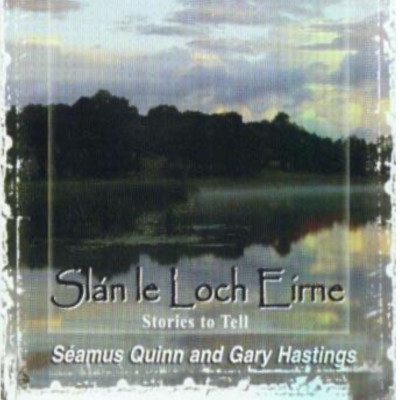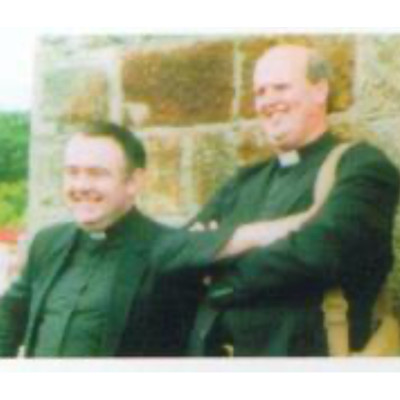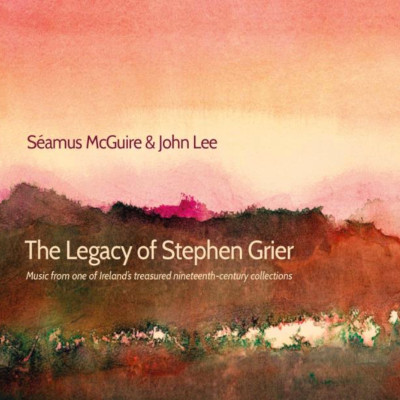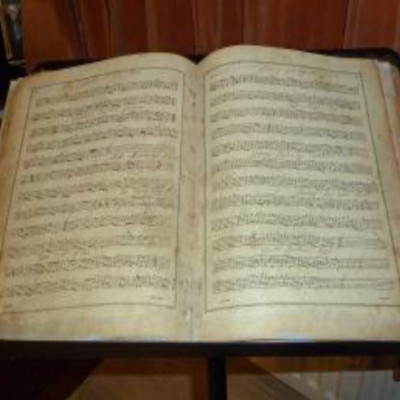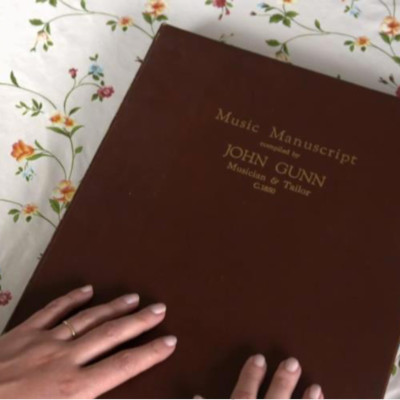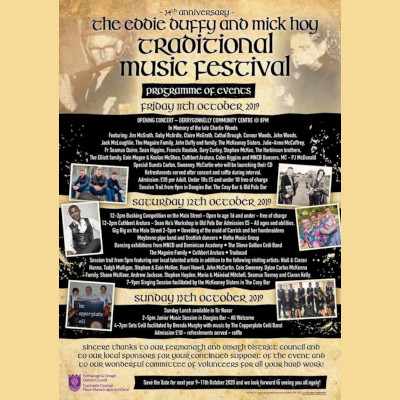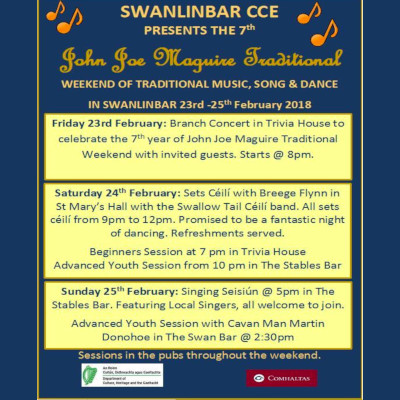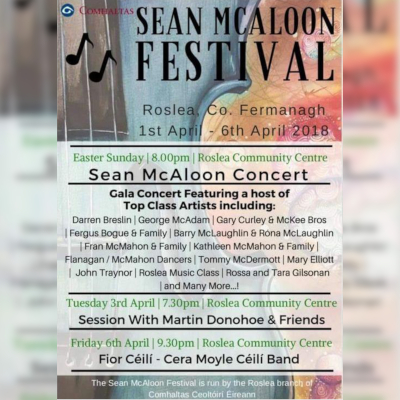Exploring the Musical Traditions of County Leitrim & County Fermanagh
In May 2020 Irish Arts Foundation launched a pioneering research programme. It centred on specific regional playing styles and influences within Irish traditional music originating from rural communities around the border counties of Leitrim in the Republic of Ireland and Fermanagh in Northern Ireland.
Programme Themes
1. Regional identity.
2. Local musical traditions in Co. Leitrim and Co. Fermanagh.
3. The families and individuals who kept the music alive, and their legacy today.
Regional Identity
In the time of the horse and cart - the ‘candle to bed’ age - each village, town and county had its own tunes and dances; a musical accent and dialect. This was due to relative rural isolation. So despite the close proximity of Co. Leitrim and Fermanagh, distinct regional identities - musical, religious and political – formed.
When talking about regional identity and style there will always be generalisations; tunes do not carry passports and music has never been constrained by borders. Despite this, we will look at what can be widely termed, a Leitrim and a Fermanagh musical tradition.
County Leitrim
Leitrim is in the province of Connacht and part of the Border Region. Its largest town is Carrick-on-Shannon with a population of 3,134.
Although one of Ireland’s smallest counties, Leitrim has a distinct musical tradition of flute and fiddle music. We will look at some of the individuals and groups who have shaped the Leitrim style of traditional music.
Leitrim Flute Music
"Co. Leitrim has preserved a distinct musical identity and tradition based largely on the flute. The Leitrim style is highly rhythmic, less ornamented, and with much use of glottal stops and even tonguing, as in the music of John McKenna." – David Cooper, The Musical Traditions of Northern Ireland and its Diaspora.
John McKenna (1880-1947)
John McKenna was born in Tarmon, near Drumkeeran in Co. Leitrim.
John married Mary Keaveney in 1909 a month before they emigrated to New York.
While working as a firefighter in NYC, John recorded some of the most influential Irish flute music of the 20th century.
The John McKenna Festival takes place every year in Drumkeeran.
The McNamara Family
Michael McNamara, a key contributor to the Leitrim flute style, was born into a musical family in Carricavoher, Leitrim. Michael and his late wife Mary raised five children, Brian, Ray, Ciaran, Enda and Deirdre, all of whom are musicians.
In 1998 the McNamara family launched their CD Leitrim’s Hidden Treasures. The album is comprised of material Michael learnt growing up in South Leitrim, as well as tunes from local manuscript collections such as the Stephen Grier Collection.
Furls of Music - The McNamara Collection
The McNamara Sound Collection was launched in 2019 under the name Furls of Music.
The archive comprises a unique archive of recordings made by Michael McNamara between 1959 and the mid-1990s.
Fiddler and composer, Owen Spafford, was commissioned by Irish Arts Foundation to compose a piece of music, using sounds from the McNamara Collection.
The resulting track, Josephine uses recordings of Josephine McNamara, with music performed by Owen Spafford, Louis Campbell and Richard Ormrod.
Owen learnt the final tune from the Stephen Grier Collection (see 'Manuscript Collections' below)
The Leitrim Equation
The Leitrim Equation is a flagship research and development programme funded by Leitrim County Council Arts Office.
Over a period of 9 years, 4 groups of musicians were commissioned to research and arrange the great wealth of previously unexplored Leitrim songs and tunes.
Musicians involved include Lunasa, Dervish, John Carty, Donal Lunny, Seamus Begley and Garadice.
More information can be found by following this link : (www.leitrimequation.ie)
The Leitrim Ceili Band
The Leitrim Ceili Band was formed in 1962. Some of the members were involved in other groups prior to the formation of the band.
They played in ceilis across Co. Leitrim to packed dance halls in Tubbercurry, Drumshanbo, Arigna, Drumkeeran and further afield.
The band were influential in keeping the Leitrim music tradition alive.
You can find more about the individuals who supported this legendary band here : (www.homepage.eircom.net)
Leitrim Fiddle Music
The Leitrim fiddle style carries a jaunty rhythm, free flowing phrases and a raw energy.
Leitrim’s fiddle music bears the imprint of its close proximity to the strong fiddle traditions of both South Sligo and Co. Donegal.
Through this blend of intricate Sligo bowing and the driving rhythms of Donegal, Leitrim fiddle players have created a style of their own.
The Lennon Family
The Lennon Family are world renowned for their lively fiddle music.
From playing locally in Kiltyclogher, North Leitrim, they have gone on to influence musicians worldwide.
Ben and Charlie Lennon characterise the flowing bowing style typical of Leitrim fiddle music. Ben, in particular, was very influenced by the playing of Sligo fiddlers, Michael Coleman and Paddy Killoran, but also would have heard Donegal music from the likes of John and Mickey Doherty.
Brian Rooney
Brian Rooney was born in Derragoon, near Kiltyclogher into a musical family of 14 children.
Like so many of his generation, and generations before him; Brian Rooney emigrated to England aged 18. Many left to join up with family or friends, for employment or seeking adventure.
From the late 1960s Brian played frequently in Irish venues across Kilburn and Camden Town, before becoming ‘famous at fifty’ with the release of his album ‘The Godfather’. Brian was awarded the TG4 Gradam Ceoil Award in 2012. Brian is acknowledged as a notable influence on many fiddlers such as Tom Morrow, John Carty and Des Hurley.
The following link opens an article by the Irish Times : (www.irishtimes.com)
The Leeds-Leitrim Community
Felix Gallagher (1919-2012) was a native of Drumkeeran, who later emigrated to Leeds.
Felix learnt his music from local flautists in South Leitrim and from 78rpms of John McKenna.
Felix can be heard playing with Des Hurley, Patrick and Paul Ruane on a field recording only recently uncovered. This is the first time a recording of Felix Gallagher has been made public.
Mik Artistik - Growing up in The Leeds-Leitrim Community
Michael Gallagher, aka Mik Artistik, is a Leeds- based artist, musician and comedian, and the son of Leitrim flautist, Felix Gallagher. Growing up in the Leeds-Leitrim Community is a recording that explores the emigrant experience typical of many Irish diasporas across the world. Mik Artistik features in this recording talking about what it meant to be “an Irish lad growing up in Leeds in the 1970s” and reminiscing about, “sitting under the kitchen table hearing Felix playing flute and box”.
The Leeds-Irish Music Programme
The Leeds-Irish Music Programme is an Irish Arts Foundation radio show broadcast on East Leeds FM. It showcases the rich history of Irish music in Leeds and the wider world, featuring oral history interviews and exclusive music performances.
On the 30th of June 2020, East Leeds FM premiered a one-off episode, Exploring The Musical Traditions of Co. Leitrim and Fermanagh. This show features music and interviews with a member of the Leeds- Leitrim community, Michael Gallagher, Leitrim-Manchester based banjoist, Maeve McGovern and Dave Sheridan, flautist with Garadice.
The following link opens the Chapel FM player : (https://www.chapelfm.co.uk)

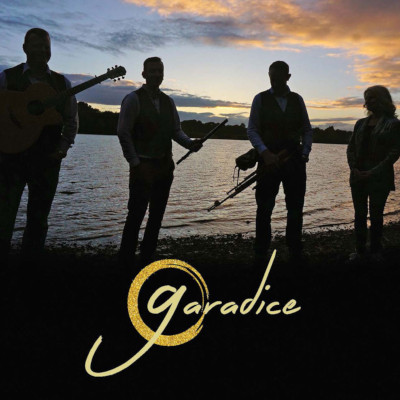
Garadice in Leeds
In November 2019, Garadice, renowned Leitrim band, performed in Leeds to a sell out crowd. This concert was organised by Irish Arts Foundation, as part of the Leeds Gathering.
Garadice are named after Garadice Lough in South Leitrim. They were brought together through the ground-breaking research project, The Leitrim Equation.
This is an extract from The Leeds Irish Music Programme: Exploring Musical Traditions of Co. Leitrim and Fermanagh. Des Hurley, Irish Arts Foundation Chief Executive, in conversation with Dave Sheridan from Garadice.
Traditional Music in Co. Leitrim Today
Through the work of many great teachers, players and composers, the music of Co. Leitrim is safe in the hands of the current and next generation.
Every year festivals such as The Joe Mooney Festival, The John McKenna Weekend and Sessions on the Shannon attract visitors from worldwide.
This slideshow contains images from the John McKenna Traditional Festival in Drumkeeran, the Joe Mooney Summer School in Drumshanbo, and Sessions at The Shannon in Carrick-on-Shannon.
County Fermanagh
Fermanagh, known as the ‘Lakeland County’ is in the province of Ulster and part of Northern Ireland.
Fermanagh is home to a variety of musical traditions, from traditional Ulster singing to fife and drum bands and Ulster country dance music.
We will look at some of the individuals and groups who have shaped the diverse range of Fermanagh musical traditions.
Traditional Music in Northern Ireland
“Northern Ireland remains a divided community in which traditional culture, in all its manifestations, is widely understood as a marker of religious affiliation and ethnic identity. Since the outbreak of the most recent 'troubles' around 1968, the borders between the communities have often been marked by music.” - David Cooper
Since the Good Friday Agreement of 1998 these boundaries have started to break down and traditional Irish music in all its various forms has enjoyed a revival.
Despite clear cut, cultural, county and national borders there is no denying the interconnected, patchwork nature of traditional Irish music across the whole of the island of Ireland.
“There is a wealth of tunes abound in our culture with blends of inspiration from all over Ireland, Northern Ireland, Scotland, Canada and from the Ulster Scots traditions” - Belfast Presbyterian Rector and flautist Rev. Gary Hastings.
Fife and Drum Bands
The Fife and Drum marching band tradition was, and continues to be, a strong musical force in Co. Fermanagh.
The drum (traditionally called a Lambeg) is made from a massive oak-shelled, rope tensioned, goat-skinned, double sided drum that weighs approximately 40 pounds and is about 37 inches in diameter.
The high pitched fife was the only instrument capable of competing with such a beast of a drum.
Marching was just as much about volume and spectacle as it was about stamina; to march with such an unwieldy instrument as the Lambeg was a feat in itself.
Fermanagh Country Dance Music
The most common form of dance in Co. Fermanagh was Ulster Country Dancing, otherwise known as Old Time Square Dancing.
This is distinct from Irish performance dances (Sean Nós) and set dancing found in the South of Ireland.
While Sean Nós (old style) dancing and set dancing have enjoyed a revival in recent years, partly due to the global success of Riverdance, Ulster Country Dancing has all but died out.
Despite this, Ulster Country Dances are still held across Co. Fermanagh and in Greyabbey, Co. Down.
Fermanagh Ceili Bands
Co. Fermanagh is famous for its numerous award-winning ceili bands including:
The Pride of Erin Ceili Band – All-Ireland Champions in 1983 and 1985.
Sean Nugent Ceili Band – All-Ireland U18 champions 1989.
And more recently the Knockmore Ceili Band – All-Ireland champions in 2014.
Sean Nugent
Sean Nugent was born in Co. Tyrone but lived most of his life in the village of Leck, Co. Fermanagh.
Sean was playing at a time when traditional Irish music in Fermanagh was scarcely found. He was instrumental in keeping the Fermanagh tradition alive and passing it onto the next generation – namely his son, Larry Nugent.
Sean won the All-Ireland Fiddle title in Listowel, 1978 and went on to found the All-Ireland winning Pride of Erin Ceili Band.
Annette Owens and Brenda McCann
Annette Owens, button accordion, and Brenda McCann, fiddle, have been playing together many years.
They competed in duet competitions from a young age and played together in the Sean Nugent Ceili Band winning an All Ireland title in the U18 Ceili Band competition.
They also feature on Hidden Fermanagh, a CD of Fermanagh music from the historic Gunn manuscript.
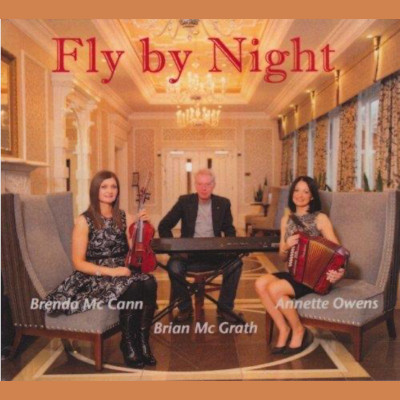
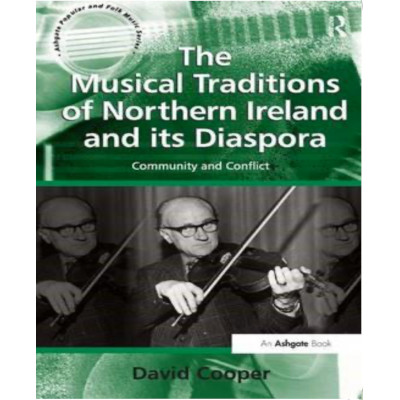
Fermanagh Flute Music
The most common traditional instrument in Fermanagh is the wooden flute.
“The Fermanagh flute style seems to perch geographically and musically between the plainer and more uniform approach of North-East Ulster and the more florid ornamentation characteristic of counties Sligo and Leitrim.”
– Professor David Cooper, The Musical Traditions of Northern Ireland and its Diaspora
Desi Wilkinson
While some flute-players graduated from fife and drum bands, Belfast-born Desi Wilkinson, sought out older players from County Fermanagh, from where it was but a short hop across the border to the centre of traditional flute-playing in County Leitrim.
As well as traditional Irish music Desi plays Turkish and Breton folk music.
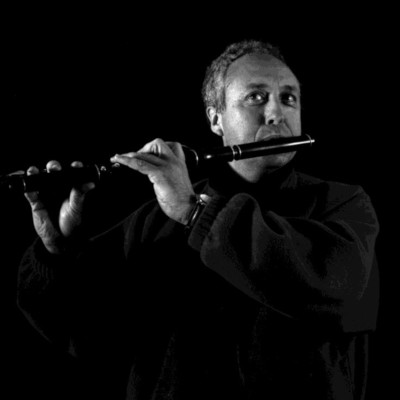
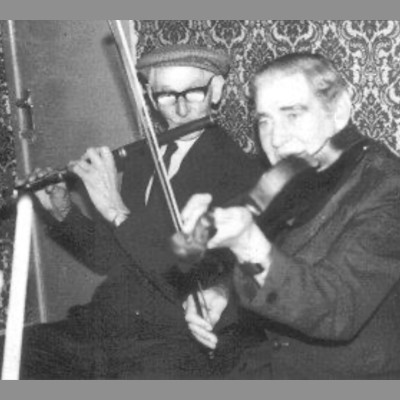
Eddie Duffy and Mick Hoy
Eddie Duffy (1894-1986) was a mainstay of the Fermanagh flute tradition and heavily influenced the likes of Cathal McConnell and Larry Nugent. He played and preserved many local tunes, most of which he learnt from his parents.
Mick Hoy (1913-2000) was a fiddler and exponent of the Ulster traditional singing tradition, a style characterised by extended variations in phrasing and frequent use of glottal stops.
Eddie and Mick played together for many years as a successful duet.
In memory of Mick Hoy and Eddie Duffy, the Eddie Duffy and Mick Hoy Memorial Traditional Music Festival takes place every year on the second weekend in October in Derrygonnelly.
Cathal McConnell
Cathal McConnell was born in 1944 in the village of Bellanaleck, Co. Fermanagh.
He is best known as a flautist and singer with well-known band The Boys of the Lough.
Cathal learnt his traditional Fermanagh flute style from his family, all of whom were singers and flautists. Cathal’s father Sandy McConnell was an influential musician who recorded for the BBC in the 1950s.
McConnell is an All-Ireland Champion in both flute and whistle categories.
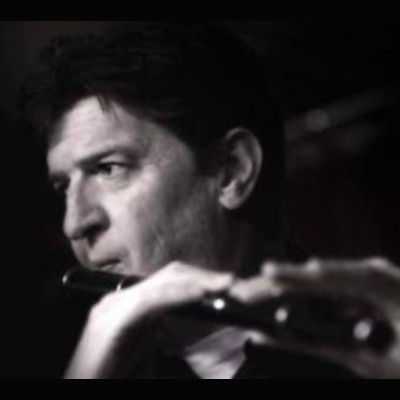
Laurence Nugent
Laurence (Larry) Nugent is from the village of Leck, Co. Fermanagh – an area renowned for its flute music. He now lives in Chicago.
Larry leant much of his music from his father, the late Sean Nugent, who was a prominent musician in Co. Fermanagh.
Larry, like Cathal McConnell, is an All Ireland Flute Champion and continues to tour across the world, bringing Fermanagh flute music to a global audience.
Rev. Gary Hastings and Father Seamus Quinn
Gary and Seamus met at Coleraine university in the 1980s and were united by their love of traditional music.
Gary Hastings, originally from Belfast, is a Church of Ireland rector who learnt his music from Fermanagh greats such as Eddie Duffy and the McConnell family.
Father Seamus Quinn is a fiddle player from the South Fermanagh/North Leitrim region. He learnt his Leitrim style from the legendary Lennon family.
In 2002 they released their debut album Slan le Loch Eirne on Copperplate Records.
More information can be found here:
click here Irish Times Article - 'The red mist of music'
click here BBC Sounds - 'Our Shared Musical Heritage'
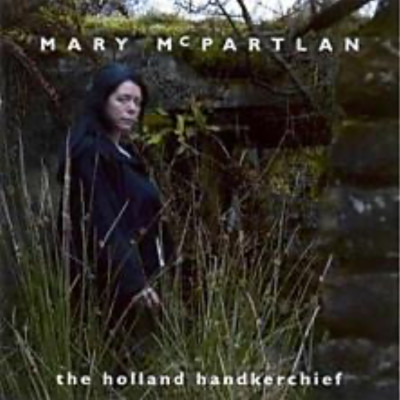
Traditional Singing across Co. Leitrim and Fermanagh
Song has always been an integral part of any musical tradition.
Songs were passed down through the generations as a form of oral history,
documenting events or stories.
Co. Leitrim and Fermanagh has been home to many great singers such as Mary McPartlan, Mick Hoy, Eleanor Shanley, Rosie Stewart, Cathal McConnell and many more.
Eleanor Shanley
Eleanor is from Keshcarrigan, Co. Leitrim and is a renowned singer across Ireland and abroad.
Eleanor sings many local Leitrim songs, such as Lovely Leitrim and Shores of Lough Bran.
Among a wide discography, Shanley sang on the landmark Leitrim album, The Leitrim Equation and with the influential De Danann.
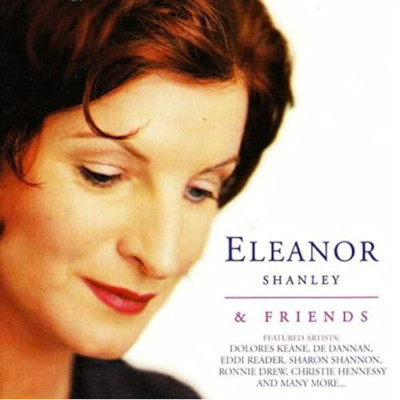
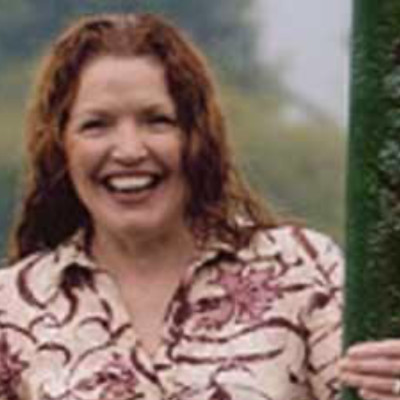
Rosie Stewart
Rosie Stewart was born in the townland of Cashel, Co. Fermanagh and is a great ambassador for traditional Ulster singing.
Rosie comes from a long line of singers who have passed down family and local songs through the generations.
In 2004 Rosie was awarded the TG4 award for Best Traditional Singer.
Manuscript Collections
Many local musicians across Ireland kept tune notebooks whether for personal use or as ethnographic and commercial collections. Famous collections include the Bunting Collection, the Petrie Collection and O’Neill’s Music of Ireland..
Co. Leitrim was home to piper and collector Stephen Grier (1824-1894). Fortunately Grier’s manuscript survived and is now one of the most important collections of Irish music from the 19th Cent.
Stephen Grier transcribed over 1,000 tunes, many of which are local to South Leitrim. An album of Grier’s tunes were recorded by Seamus Maguire and John Lee.
The Gunn Book from Co. Fermanagh is a tunebook manuscript transcribed by John Gunn in the mid 19th cent. It contains over 150 tunes.
These books provide key insights into the musical traditions of pre 20th century Co. Fermanagh and Leitrim.
Traditional Music in Co. Fermanagh Today
Traditional music weekends and festivals are a key point in the music calendar. Here, masters of the tradition pass down local musical traditions to the next generation.
Classes are taught by ear and people of all ages and nationalities are welcome.
Fermanagh is home to many music festivals, notably the Eddie Duffy and Mick Hoy Festival, The Sean McAloon Festival and the John Joe Maguire Traditional Music Weekend.
This slideshow contains images from 'The Eddie Duffy and Mick Hoy Traditional Music Festival' in Derrygonnelly, The 'John Joe Maguire Weekend of Traditional Music, Song and Dance' in Swanlinbar, and 'Sean McAloon Festival' in Roslea.
Traditional Irish Music in the 21st Cent.
Traditional Irish music is, now more than ever, a global success. Jigs and reels can be heard across the world from Tokyo to Chicago and Paris.
The passion and dedication of musicians across the ages has ensured that regional music styles, such as that of Co. Leitrim and Fermanagh, have survived and continue to flourish into the next generation. As Rev. Gary Hastings said, “traditional music isn’t about music at all, it’s about people”.
Co. Leitrim further reading
click here (homepage.eircom.net) The Leitrim Ceili Band
click here (www.leitrimequation.ie) The Leitrim Equation
click here (www.itma.ie) Furls of Music - The McNamara Collection ITMA
click here (www.irishtimes.com) Charlie Lennon, Fiddler on the Hoof
click here (www.mustrad.org.uk) John Vincent Harrison
click here (www.johnmckenna.ie) John McKenna Traditional Music Society
click here (www.hiddeneurope.co.uk) O’Carolan and Leitrim Landscapes
click here (www.facebook.com) Des Hurley and Friends
Co. Fermanagh further reading
click here (www.irishmusicreview.com) ‘Hidden Fermanagh’ Traditional Music and Song from County Fermanagh
click here (www.fermanaghherald.com) Tributes to trad music’s gentle giant, John McManus
click here (www.irishtimes.com) John Joe Maguire. ‘Traditional flute player who mastered the reel and shunned the spotlight’
click here (www.mustrad.org.uk) ‘Dog Big and Dog Little’ - recognised as the definitive recording of the Fermanagh/Leitrim style of traditional music’
click here (www.altan.ie) ‘Altan’- The Fermanagh connection
click here (www.impartialreporter.com) Fermanagh musician joins forces with legendary De Dannan
click here (www.culturenorthernireland.org) Musical Families in Fermanagh: The McGraths
click here (www.fermanaghherald.com) All-Ireland success for Fermanagh Ceili Band
click here (www.impartialreporter.com) John Joe Gordon Traditional Music Festival: Belleek prepares to host 10th annual event in memory of master fiddle player
Further reading
click here (eprints.dkit.ie) Towards a Regional Understanding of Irish Traditional Music
click here (www.research.ed.ac.uk) Research Scoping Study: Ulster-Scots Music Traditions - DCAL Ulster-Scots Music Traditions (ed.ac.uk)
click here (eprints.dkit.ie) ‘Traditional Irish music here tonight’: Exploring the session space - Traditional Irish music here tonight.pdf
click here (www.amazon.co.uk) David Cooper, The Musical Traditions of Northern Ireland and its Diaspora
click here Download a PDF version of this web page
Listen to the Irish Arts Foundation Spotify Playlist:
click here (www.spotify.com) Exploring the Musical Traditions of Co. Leitrim & Co. Fermanagh Spotify playlist

